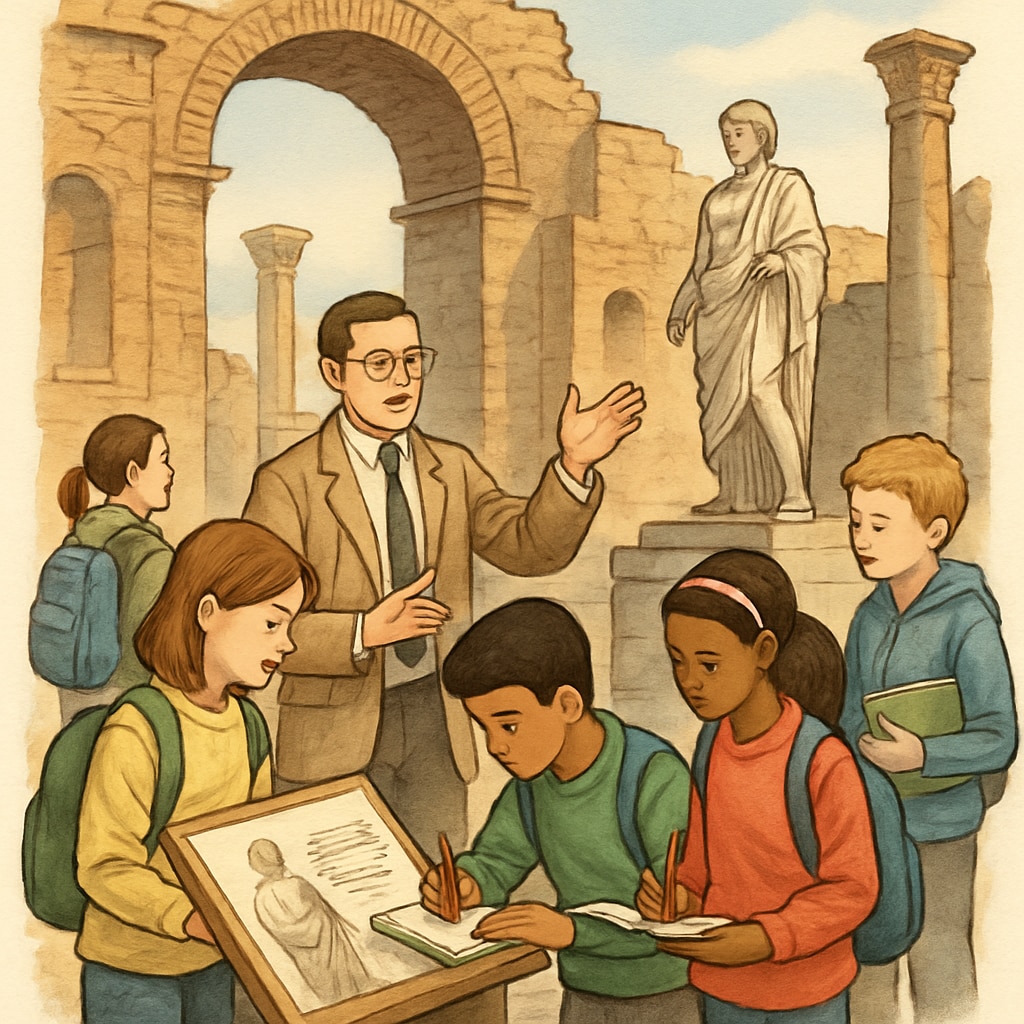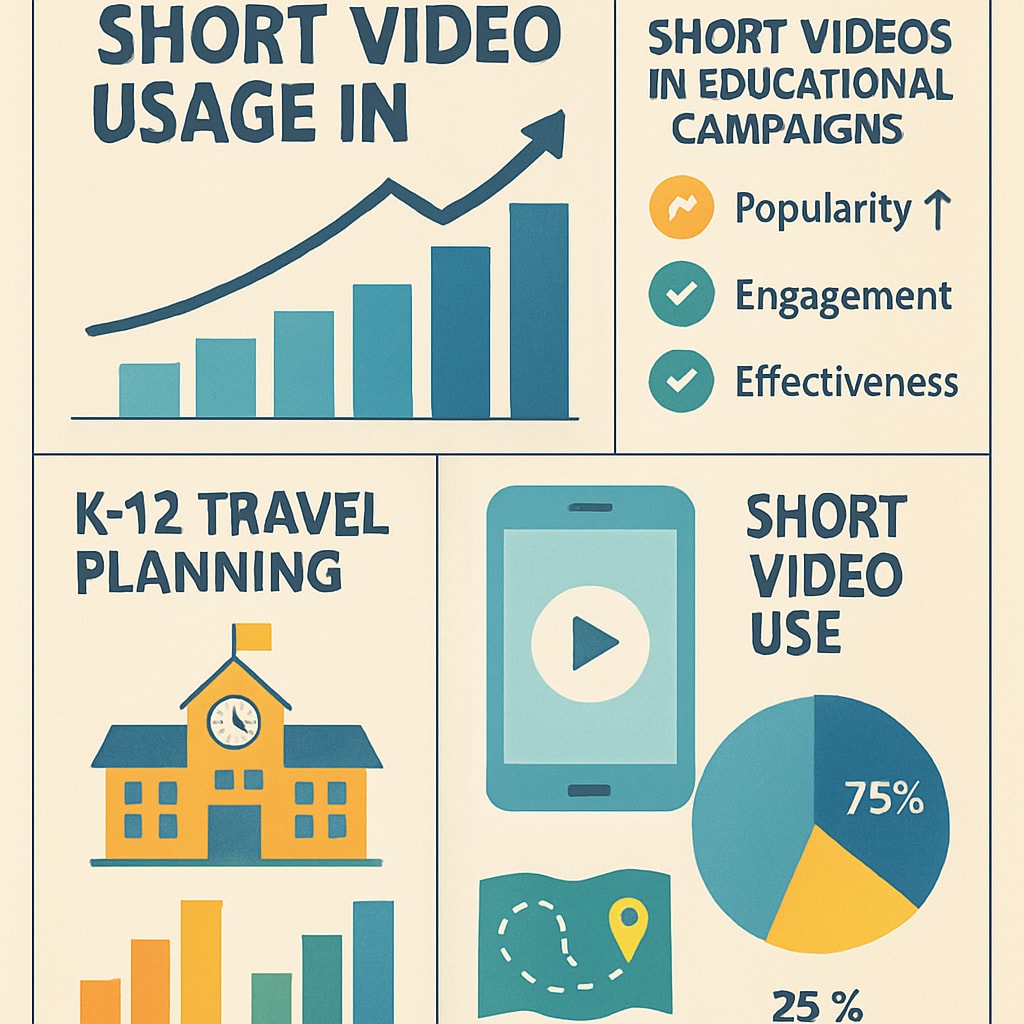In the digital age, short videos have emerged as a powerful medium for influencing decision-making across various domains. Research for a master’s thesis on the topic, “Short videos, travel decisions, and survey responses”, reveals how these bite-sized visual stories are redefining the way K12 students, parents, and schools approach educational travel. From enhancing travel awareness to shaping parental perspectives, short videos are becoming a vital tool in modern education systems.
How Short Videos Shape Travel Decisions in K12 Education
Short videos, typically ranging from 15 to 60 seconds, are concise yet impactful. They have the ability to showcase destinations, highlight unique learning opportunities, and provide real-life testimonials—all of which can influence K12 travel decisions. Platforms like TikTok, Instagram Reels, and YouTube Shorts are increasingly used by schools and educators to promote educational trips, offering a more engaging way to communicate with parents and students alike.
For example, a school planning a trip to a national park might create a short video featuring the park’s scenic beauty, interactive exhibits, and testimonials from past students. This visual narrative can effectively capture the attention of parents and students, making the decision-making process more informed and emotionally appealing.
- Students: Short videos spark curiosity and excitement, helping students visualize the learning experience.
- Parents: Parents often rely on these videos to assess safety, educational value, and overall benefits of the trip.
- Schools: Schools can use short videos as a marketing tool to showcase their commitment to experiential learning.

Broader Impacts: From Awareness to Decision-Making
Short videos not only inform but also inspire action. In the context of K12 travel, they serve multiple purposes:
- Enhanced Awareness: Videos can introduce students and parents to destinations they may not have considered.
- Emotional Connection: Visual storytelling evokes feelings of excitement and anticipation, making trips more desirable.
- Accessibility: Videos are easy to share across social media platforms, ensuring wide reach and engagement.
- Transparency: By showcasing real experiences, schools build trust with parents.
According to a study published by Britannica, visual content is processed 60,000 times faster than text, making it a highly effective tool for communication. The rise of short videos has capitalized on this tendency, creating a new paradigm for decision-making in educational travel.

Challenges and Opportunities for Educators
While short videos offer numerous advantages, they also present challenges. Educators need to ensure that the content is accurate, engaging, and aligned with educational goals. Additionally, the rapid consumption of short videos might lead to oversimplification of complex subjects, which could affect decision-making.
To maximize the potential of this medium, educators and schools can adopt the following strategies:
- Professional Content Creation: Collaborate with media professionals to produce high-quality videos.
- Interactive Elements: Include quizzes, polls, or call-to-action prompts to engage viewers.
- Feedback Mechanisms: Use surveys to understand parent and student preferences.
- Consistency: Maintain a regular posting schedule to keep audiences engaged.
By leveraging these strategies, educators can use short videos not just as a promotional tool but as an integral part of the educational experience.
Conclusion: The Future of Educational Travel Decisions
Short videos are undeniably transforming the way K12 educational travel decisions are made. They offer a unique blend of information, emotion, and accessibility that appeals to both parents and students. As schools and educators continue to explore this medium, its role in shaping travel experiences will only grow.
For anyone conducting research, such as a master’s thesis, or seeking insights into short videos and travel decision-making, this topic remains ripe for exploration. The findings can help educators refine their approaches, ensuring that K12 students gain meaningful and enriching experiences through educational travel.
Readability guidance: This article emphasizes short paragraphs, clear headings, and actionable strategies. The use of lists and overviews ensures easy comprehension for readers of all levels while maintaining a professional tone.


